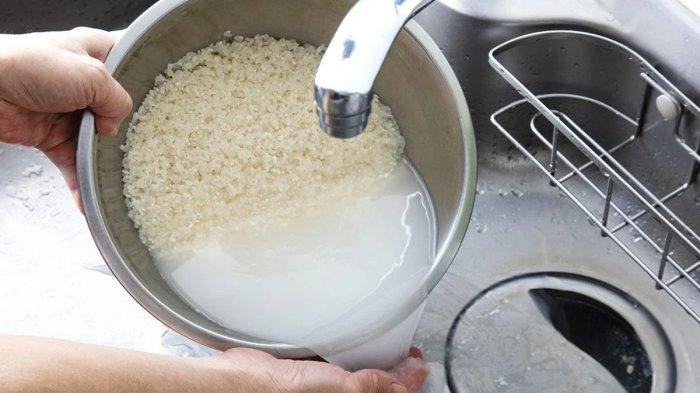Diksia.com - Rice, or paddy, is a staple food for billions of people in Asia and Africa.
Rice is also a versatile ingredient in many famous dishes from around the world, including dolmades from Greece, risotto from Italy, paella from Spain and rice pudding from England.
Despite its universal appeal, the question in every kitchen is whether rice should be washed before cooking.
What do the experts say?
In a quote from The Conversation, culinary experts claim that pre-washed rice can reduce the amount of starch derived from rice grains.
This can be seen in the cloudy rinsing water, which research has shown to be free starch (amylose) on the surface of the grain resulting from the milling process.
Rice washing is recommended in culinary circles when you want the rice grains separated.
But other dishes like risotto, paella, and rice pudding (where you need a gooey and creamy effect) skip the wash.
Other factors such as the rice variety, family traditions, local health warnings, and even the time of day affect whether a person needs to wash the rice before cooking.
Is there any evidence that washing rice makes it less sticky?
A recent study on sciencedirect.com compared the effects of washing on the stickiness and hardness of three different types of rice from the same supplier.
The three types are sticky rice, medium grain rice, and jasmine rice.
These different types of rice are either not washed at all, washed three times with water, or washed ten times with water.
Contrary to what cooks would say, this study showed that the washing process had no effect on the stickiness (or toughness) of the rice.
Instead, the researchers showed that the stickiness is not due to surface starch (amylose), but to another starch called amylopectin, which is leached out of the rice grains during the cooking process.
The amount washed varies depending on the rice grain type.
So it’s the type of rice – not washed or not – that needs to be considered if you want sticky rice.
In this study, sticky rice was the most sticky, while medium rice and jasmine rice were less sticky and also harder, according to laboratory tests.
Reasons for the need to wash rice
Traditionally, rice is washed to remove dust, insects, small stones, and husks left over from rice milling.
This may still be important for some regions of the world where processing is less stringent.
When it was discovered that plastic was used extensively in the food supply chain, microplastics were found in our food, including rice.
The washing process has been shown to remove up to 20 percent of the plastic from raw rice.
The same study found that microplastic content is the same regardless of the packaging (plastic or paper bag) you buy rice in.
The researchers also showed that the plastic content in instant rice (pre-cooked rice) was four times higher than in paddy rice.
If you rinse instant rice first, you can reduce plastic by up to 40 percent.
It is also known that rice is relatively high in arsenic because plants absorb more arsenic as they grow.
Rice washing has been shown to remove about 90 percent of the arsenic, but it also removes large amounts of other nutrients important to our health, including copper, iron, zinc and vanadium.
For some people, rice is a small part of their daily diet and therefore has little impact on their health.
But for a population that consumes large amounts of thoroughly washed rice every day, it can impact the overall diet.
In another study, other heavy metals, lead and cadmium were examined in addition to arsenic. Prewashing was found to reduce these values by 7 to 20 percent.
The World Health Organization has warned of the risk of arsenic exposure from water and food.
The arsenic content in rice varies depending on the growing area, rice variety and type of preparation.
The best advice is still to wash the rice first and make sure to include different grains as well.
A recent 2005 study found that arsenic levels were highest in the United States.
However, it’s important to remember that arsenic is also found in other foods, including products made from rice (cakes, crackers, crackers, and granola), seaweed, seafood, and vegetables.
Does washing rice prevent bacteria from entering?
In short, no.
Rice washing does not affect the bacterial levels in the cooked rice, as high cooking temperatures kill any bacteria present.
Of greater concern is how long you can store uncooked or washed rice at room temperature.
Cooking rice does not kill the bacterial spores of a pathogen called Bacillus cereus.
When wet rice or cooked rice is stored at room temperature, the bacterial spores can become active and begin to grow.
These bacteria then produce a toxin that cannot be inactivated by boiling or heating; This toxin can cause serious gastrointestinal disorders.
Therefore, be careful not to keep washed or cooked rice at room temperature for too long.






